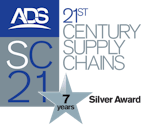Related Specifications
- AMS5844
- AMS5845
- AMS5758
Properties
Chemical Composition
MP35N
| Chemical Element | % Present |
|---|---|
Molybdenum (Mo) | 0.00 - 10.00 |
Chromium (Cr) | Balance |
Nickel (Ni) | Balance |
Cobalt (Co) | Balance |
Applications
- Instrument parts in seawater, oil and gas well, medical, chemical and food processing environments
- Downhole pump drive shafts and tools
- High strength marine components
- Springs
- Valve stems and pump shafts in the oil & gas sector
- Fastener system components
- Medical applications
- Non -magnetic, electrical components and sensing devices
- Components in autosport
Characteristics
- Excellent tensile strength, ductility and toughness
- Excellent resistance to the effects of corrosion
- Resistant to hydrogen sulphide corrosion, saltwater corrosion and also offers resistance to other chloride solutions and certain mineral acids
- Resistance to crevice cracking in saltwater environments is also excellent.
Additional Information
Fabrication
MP35N alloy can be hot and cold worked and formed by a wide variety of processes. Work strengthening can be accomplished by extruding, rolling, swaging, drawing or a combination of these manufacturing processes. MP35N alloy may be TIG welded, and in general, its weldability is similar to that of Type 304 stainless steel. Joint efficiency is dependent upon the heat treatment / worked condition of the material. The machinability of MP35N is similar to but better than that of Waspaloy, a widely used standard for nickel-cobalt-chromium base alloy machining performance.
Heat Treatment
MP35N should be aged at the temperature required to achieve the final properties desired. The amount of cold work in MP35N defines the recommended aging treatments. For AMS 5844 (fully strength/heavily cold worked) material, the alloy
should be ages at 1000ºF - 1200ºF for 4 hours. For optimum sulphide SCC resistance, less-heavily cold worked material can be aged at 1300ºF or 1350ºF for 4 hours or at 1425ºF for 6 hours as indicated in NACE MR-0175. The 425ºF aging treatment provides the best sulphide SCC resistance, but at the expense of strength. Exposure to temperatures much above the recommended aging temperatures may result in significant (and nonrecoverable) loss in strength cause by the reversion of the cold-worked metallurgical structure to the much softer annealed structure.
Corrosion Resistance
MP35N alloy offers outstanding resistance to general corrosion, crevice corrosion and stress corrosion at all strength levels. The four alloying elements in MP35N being the basis for corrosion resistance in almost every stainless steel, nickel and cobalt-based alloy commonly used in the industry. The alloy resists corrosion in hydrogen sulphide, saltwater and other chloride solutions, as well as the mineral acids (nitric, hydrochloric, and sulphuric). The alloy is also resistant to hydrogen embrittlement. MP35N is an extremely noble metal, very similar to titanium, and may cause galvanic corrosion if coupled to a less noble material such as Type 316 stainless steel.



